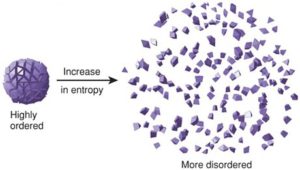[Greek] ἐντροπή (entropē), [Latin] reverentiam: shame, respect, ashamed, a turning inward, confusion, a turning in upon oneself (recoiling from what is unseemly), embarrassment; 1 Cor6:5, 1 Cor 15:34,

Background Information:
Old Testament: Interestingly, this term entrope refers to a turning in when one experiences shame or embarrassment. This turning in emphasizes the confusion or disorderliness that follows the shame experience. David confesses to God his shame and revulsion at his sin (Psa.35:26). The people have disgrace before them, their faces covered with shame (Psa.44:15). David, filled with shame and dishonor, before God is broken-hearted and sick (Psa.69:19-20). An old man, experiencing contempt and scorn, asks God to bring this to a shameful end (Psa.71:13).
New Testament: In both illustrations in scripture, Paul uses shaming in a constructive way. The Christians in Corinth appear to be corrupted by the immoral values and practices in Corinth. The Christians cannot find it among themselves to settle their own disputes. Paul again criticizes the Christians for failing to live a faithful and disciplined life. Not surprisingly, confusion and disorder occur.
“I say this to shame you. Can it be that there is not one among you wise enough to be able settle a case between brothers?” 1 Cor.6:5
The Christians in Corinth, are not able to settle their disputes with Christian principals and morals. Instead, these Christians are settling their cases before pagan courts. Paul is intentionally shaming the Christians in order for them to see the error of their ways.
“Become sober as you ought and stop sinning. For some have no knowledge of God; I say this to your shame.” 1 Cor.15:34
Paul again needs to correct the Corinthians for their sinning and lack of knowledge. Instead of living a life of pleasure, the Corinthians must exercise moral discipline and faith.

2nd Law of Thermodynamics: This law states that entropy is the measure of disorder of a system. There is a natural tendency of any isolated system to move to a more disordered state. This explains why ice melts into water.
Conclusion:
Entropy, reverence
I would have never thought that shame and entropy would be related. At first glance, there does not seem to be a relationship. It was interesting to discover that the original Greek language used the idea of turning inward to describe shame and embarrassment. In the Psalms, shame and confusion go hand in hand. It is from this idea of turning that we can understand the idea of matter turning from order to disorder.
So the Greeks had it right after all. We all have been down this road. We get very unsettled (disturbed or unsettled) when we cringe in situations. When we do something stupid or embarrassing, we just want to “turn in” and hide. Then we need to pick up the pieces.
